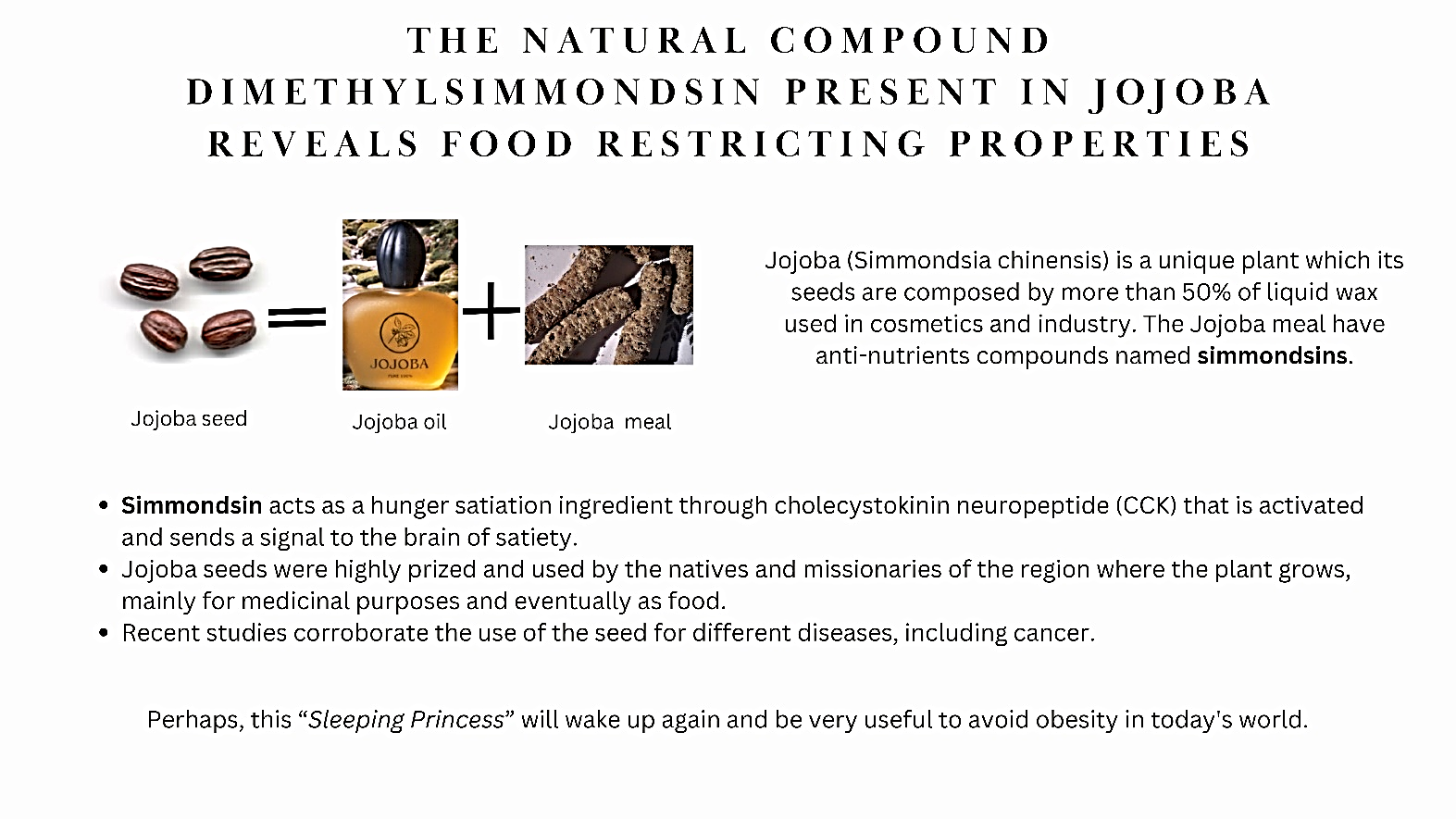The natural compound dimethylsimmondsin present in jojoba reveals food restricting properties
DOI:
https://doi.org/10.31989/fffso.v1i5.1106Περίληψη
Abstract: Obesity has become a serious medical problem in developed countries. Currently marketed anti-obesity drugs have limited efficacy and significant adverse effects, creating a significant need for a new generation of anti-obesity therapeutics. For optimal efficacy, new drugs should aim to both reduce appetite and increase energy expenditure, or at minimum, counteract the reduction in energy expenditure resulting from decreased food intake.
Prevention is often more effective than a cure, and this study proposes a natural method using the Jojoba seed, specifically its simmondsins components, to reduce food intake by activating Cholecystokinin neuropeptide (CCK).

Keywords: Simmondsin, Cholecystokinin, Jojoba, Functional food, Obesity, appetite.
Δημοσιευμένα
Τεύχος
Ενότητα
Άδεια
Any manuscripts or substantial parts of it, submitted to the journal must not be under consideration by or previously published in any other journal or citable form. Authors are required to ensure that no material submitted as part of a manuscript infringes existing copyrights or the rights of a third party. In submitting one's article in any form, the author has assigned the FFC publishing rights and has agreed to an automatic transfer of the copyright to the publisher. This is so that the FFC may create print option journals, for example, at the FFC’s discretion. If the author wishes to distribute their works by means outside of the FFC, for example within their community, they will have to place a request.
Correspondence concerning articles published in Functional Foods in Health and Disease is encouraged. While derivative works (adaptations, extensions on the current work, etc.) are allowed, distribution of the modified material is not allowed without permission from the FFC.